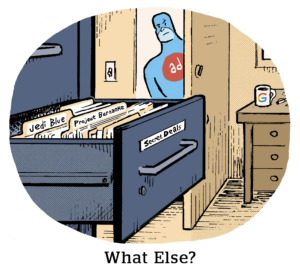Spend Money To Make Money
The proliferation of companies launching ancillary advertising businesses is a boon to total ad spend. Buy-now-pay-later players Affirm, Klarna, Afterpay and PayPal spent a combined $52.45 million on TV, print and digital media from January to September this year, Business Insider reports. That’s up 130% from last year. BNPL companies are hitting the same inflection point as ride-share apps like Lyft and Uber (another company investing heavily in its programmatic “side hustle,” so to speak). The category is crowded with venture capital-backed competitors willing to earn market share at a loss for a chance to reach sustainable profitability. And they’re embracing ad budgets as an easy, high-margin revenue stream, hoping to pull off an Amazon-esque feat. Following close on the heels of the BNPL category is the plague of super-quick delivery services cropping up around big cities and universities. These VC-backed startups (Gorillas, Joker, Buyk and Fridge No More among them) operate at massive losses and are huge customer acquisition spenders, The Information reports. They’ve raised billions, and 20% to 30% of that will go to marketing. They’re playing catch-up with the likes of Instacart and GoPuff, which, uhh, you guessed it, are heavily invested in new ad platform businesses.
So We Beat On, Bots Against the Current
Nike and other popular designer sneakers (aka kicks) have always been standouts in ecommerce and digital marketing. Part of that is the dynamic you which aficionados line up, scout and stake out possible launches. A musician or athlete launches a new line of shoes, and there’s a built-in customer base and a powerful community to amplify the effect. But now those fans have been replaced by bots. When new sneakers drop, software generates accounts and snaps up as many as it can. Such software-based shopping tactics aren’t illegal nor are they exclusive to sneakers, The New York Times reports. It’s a serious business, too. Cybersole, one popular sneaker bot service, cleared $300 million in transactions since it was released in 2018 – 5,000 individual customers license the tech. Some shopping bots rent servers in the same buildings as the retailers they target in order to save milliseconds on latency. “It’s depressing to think about,” said Jay Gordon, co-owner of the sneaker chain Bodega. “At some point, you have to ask, ‘How much time are we supposed to spend to stop people from buying our products?’”
Lords Of Creation
The social media bidding war for creator talent mostly takes the form of pledges and funds supplied by Snapchat, Facebook, YouTube, Pinterest and TikTok to stimulate content creation and views (especially short-form videos that have become the most desirable mobile attention currency since the rise of TikTok). But another important aspect is creative and talent agency development. Social platforms need to spot and cultivate talent, and the algorithm only gets them so far. Instagram has hired a 40-person emerging-talent team tasked with identifying potential stars on the network, The Wall Street Journal reports. Snap is also hiring a team to work with “Snap Stars,” its term for real-world and in-app celebrities. YouTube stands out for essentially having its own massive agency of hundreds that work with creators. Online comedian and YouTube creator Adande Thorne is a case study, the Journal reports. So much so that when Facebook launched IGTV as a potential video hub in 2018, he was invited to meet and discuss a potential partnership. Thorne said they asked him a lot about YouTube’s operations. “It was: Who’s your manager? And what do you guys talk about?”
But Wait, There’s More!
How TikTok is changing YouTube. [The Information]
Centro rebrands to Basis Technologies. [MediaPost]
Mike Shields: TV’s quiet battle for all the OS marbles. [Substack]
Coveo expands commerce search and personalization with Qubit acquisition. [release]
Measurement errors in Amazon’s OSP program set publishers on edge. [Digiday]
You’re Hired
NBCUniversal promotes Margaret Walker to SVP of audience acquisition and growth. [Deadline]













